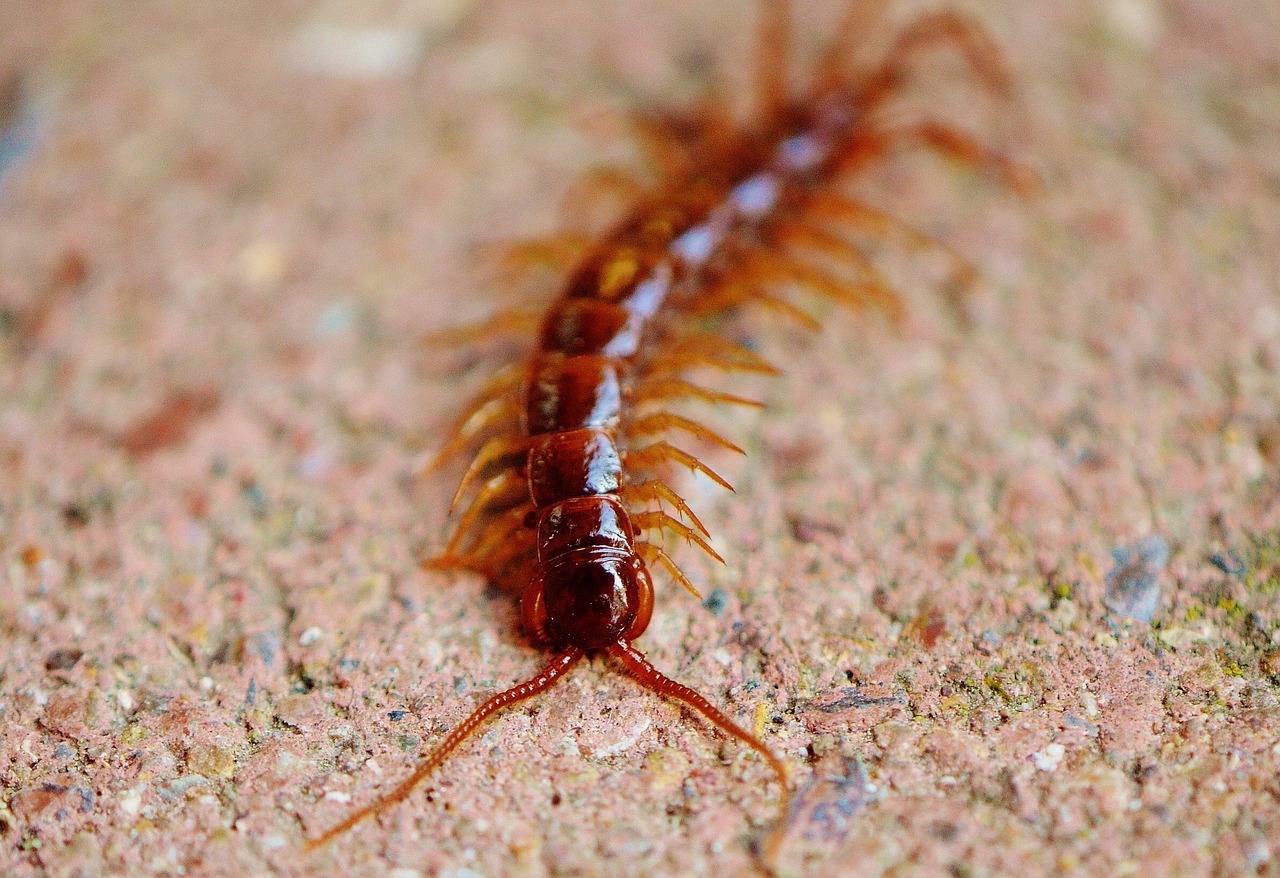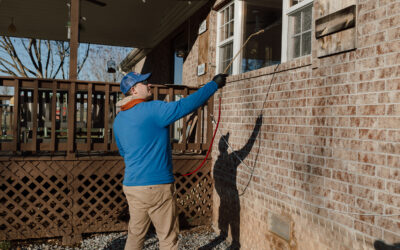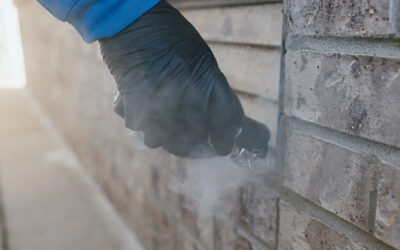
What should I do if I see a centipede in my home?
Unfortunately, there aren’t many signs of a centipede infestation besides the unpleasant experience of seeing live insects in your home. They do not leave behind much evidence of their existence, and people rarely see them because they move quickly and are mainly active at night. While they don’t damage property, they do pose health risks for individuals who may be allergic to their venom.
How can I get rid of centipedes?
Centipedes can be hard to get rid of because they are very reclusive and highly skilled at hiding away from where people usually spend time. A trained pest control specialist will be able to apply the appropriate treatments and clear your space of any centipedes that are lurking there.
You can take preventive measures to lower your chances of having more problems with centipede infestation:
- Eliminate other pests – Because centipedes feed on other insects, controlling other pest populations will help you control centipedes. Generally, whenever you want to get rid of one type of pest, the methods that you’ll use to control their population will automatically help you reduce the populations of other insects that may be in the area. Most chemical extermination methods, as well as sticky traps, will help you deal with a wide range of household pests.
- Tidy up any debris – Clearing your spaces of clutter and debris will help reduce the number of places that centipedes hide, especially near walls. Stacks of books, newspapers, or other paper goods are especially attractive to centipedes. That’s because they love to eat silverfish, who are attracted to these sorts of collections and materials. Cardboard boxes are another type of debris that should definitely be cleared away if you see centipedes in your home.
- Seal cracks and openings – Sealing up any openings will help block centipedes from entering your space. The easiest way to do this is to close all your window blinds and curtains, turn off all your lights, and walk around your home during daylight hours. This will help you spot chinks of light that will show you clearly where gaps exist and must be sealed up. A variety of easy, inexpensive solutions can help you seal up cracks and openings. These include silicone caulk, weather stripping, and spray foam that is meant to be used for this very purpose.
- Vacuum – If you see a centipede in your home, you can use your vacuum to safely pick it up without having to touch it. However, be careful using this method with a centipede nest. If you find a large collection of centipedes in your home, it is a serious infestation and would be best handled by professionals.
West Termite, Pest & Lawn is ready to help you deal with your pest problems quickly and effectively. Our trained specialists are happy to help you identify any problem areas, address any existing infestations, and prevent future pest problems from interrupting your home life. Call us for an estimate!
More posts from West Termite, Pest & Lawn
Pestproofing Entry Points Before Spring
As spring approaches in Arkansas, homeowners face an increased risk of pests seeking warmth, food, and shelter. Many infestations begin with small, unnoticed entry points that allow insects, rodents, and other pests to move indoors. Pestproofing your home before the...
Early Spring Termite Activity in Arkansas
As Arkansas begins to warm in early spring, homeowners may assume termites remain dormant until the summer months. In reality, spring termite colonies can become active much earlier, especially as soil temperatures rise and moisture levels increase. Subterranean and...
Preparing Your Home for Early Spring Pests
As winter fades and temperatures rise in Arkansas, homes become vulnerable to a fresh wave of early spring pests. Early spring is a critical time to take preventive action because insects, rodents, and other pests start emerging from dormancy, seeking food, warmth,...



